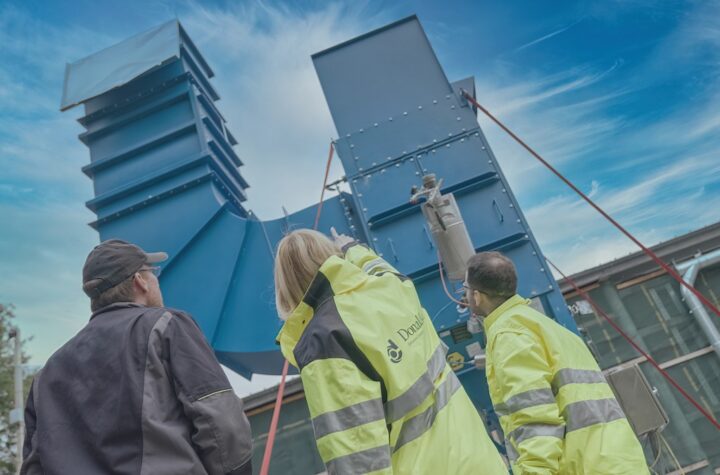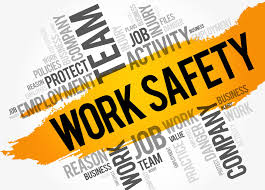West Sweden is home to a large number of telematics firms – one reason for this is because in 2001, an organization called Telematics Valley, was set up to promote the area as a telematics hub for the automotive industry. The organization initially had 26 members and today it has over 50.
It is estimated that there are well over 100 companies working within the telematics sector in Sweden with a majority of those operating in West Sweden. They are of great diversity, and together they can perform all the central activities necessary to build an end-to-end telematics system. Gothenburg, in West Sweden, is a city that has seen numerous telematics projects from even earlier. For example, an EU project called Prometheus, was launched in 1986 by the European automobile industry.
Telematics Valley’s stated mission is to support and strengthen the development of business and technology and act as a catalyst for the creation of business opportunities. “Telematics Valley seeks to promote the use of telematics to benefit all users in the automotive and transport sector. Bringing together the mix of private and public sector, together with academia, allows for Telematics Valley to provide a forum for the opportunity to share and exchange ideas and information,” states a quote on the organization’s website.
In the past few years, over 500 new companies focused on wireless communications and the mobile Internet have sprung up in Sweden. One such company, Ericsson, plays a significant role in this by offering a broad base for start-ups, being a potential customer and providing a recruitment base for new staff. In West Sweden, SAAB and Volvo play a similar role for the numerous wireless start-ups focusing on the vehicle industry.
“Within the Göteborg region we have a unique situation with really strong players within the automotive and IT industries. We now join forces to create state-of-the art knowledge within the area of telematics, which is an area with great potential for the future. The region has a unique opportunity to become a global competence center for telematics and the Volvo Group will strongly support this development” said Leif Johansson, President & CEO, AB Volvo.
Telematics Valley holds an annual conference that deals with issues impacting the telematics industry – this year’s conference is titled Telematics & The Environment and will be held in Gothenburg on December 10th and 11th. One of the issues that will be discussed at the conference will be eCall – a European Commission project that will bring rapid assistance to motorists anywhere in the EU in case of accidents. The project is slated to be implemented by 2009. eCall will employ a hardware ‘black box’ that will be installed in vehicles. Many telematics firms are involved in different aspects of eCall which faces challenges such as standardization of protocols. Currently, eCall solutions that use SMS are used by BMW, PSA and Volvo. “Last years Telematics Valley Conference opened up a positive dialogue between the EU that looks for standardization of the Pan European eCall service and the vehicle manufacturers who offer their private alternatives. It is time to sum up past year’s achievements and get informed about today’s and tomorrow’s situation,” says Telematics Valley.
Automotive Industries spoke to Jan Unander, director of Telematics Valley.
How can Telematics be used to save the environment. What role has Telematics played in the Automotive industry so far?
The most important issues for Telematics is to be used to change behaviour of vehicle drivers making them drive more environmentally friendly.
To drive more environmental friendly can be achieved by enforcements and you need a surveillance system combined with a charging system. Like today’s congestion charging systems or road tolls.
However, these systems are not 100% fair (if any system can be) as they do not incorporate the individual’s driving behaviour and the vehicle’s performance. To accomplish this, accurate and relevant information from the individual vehicle need to be extracted and sent to a system that will calculate the level of individual environmental footprint that is made.
Telematics will be used to connect the chain between engine data and the charging system. There are examples of companies working in this field where Lysanda from the UK has a very interesting solution.
Within public transports, Pilotfish measure the fuel consumption connected to the individual drivers and send feedback to management. Bonus systems to promote good driver behaviour is a key to success. The same is achieved by Volvo Trucks, Scania and Vehco through their Fleet management Systems.
Diagnostic data and telematics will be the keys.
So far Telematics has mostly been promoted as a channel for entertainment and navigation services. That market will continue to grow but the vehicle industry has the last years acknowledged the value of the diagnostic data in the vehicle and how it can be used and we will see creative Telematics solutions that will bring value to the end users as well as to the vehicle manufacturers and their aftermarket systems.
What are some of the issues that will be discussed in this years TV Conference?
Like last year the two major issues are how Telematics can be used to protect the environment and also eCall.
Telematics Valley’s conference are is somewhat different from most other conferences as we focus less on updates on products and services and more on the driving factors behind that will influence how the Telematics market will develop.
We also want to give the attendees a broad picture with contradicting opinions that will give a deep insight and thus also through panel debates, sometimes a possibility to influence the development of the Telematics business.
Mark Lynas, author of the book “Six degrees” will give us the picture of what is happening and what will happen if we don’t do anything about the impact we create on the health of our planet. It is not an easy task we have in front of us.
We also want to describe what alternatives like hybrids and electrical cars can make as well as let transport companies tell us how they address the issues and what requirements they will have on e.g. the truck manufacturers.
From India we will get a report by Tata how a car manufacturer can act to support a country of that size, to fight pollution.
We are really looking forward to the presentations and debate.
ECall is chosen, not only because of its importance as a safety service but also as the driving force to increase the penetration of embedded Telematics units into a huge amount of vehicles.
What are some of the challenges facing eCall and how close are companies to solving these issues?
ECall is still more a question of how a complex service like that can be organised so the promise of faster rescue services can be fulfilled. We still wait for UK and France to sign the MoU. The emergency number 112 is accepted all over EU now but there are still hurdles as the awareness of that number is still too low in certain countries. Even if the eCall system will dial 112 automatically there are other situations when you need to call manually.
The organisation of Public Safety Answering Points (PSAP) is also a huge issue. How to make sure the signal reaches the right PSAP and delivers correct information and make a voice connection. Different technical solutions to deliver the message to the PSAP will require different actions and investments. On top of that the structure of PSAPs in Europe varies widely from country to country and to create a standard solution becomes difficult.
We will listen to the very key players now, the EU will be represented by Juhani Jäskilääninen and from the commercial actors PSA, Volvo, Qualcomm, Telenor and Ericsson will attend. The PSAPs will be represented by the KOKOM that is the Norwegian organisation.
On top of that Pierre-Enric Steiger from the Steiger Stiftung will present their service and explain why in Germany they decided to use the standard eCall delivery to PSAPs combined with a web solution.
Of course the technical issue of the SMS v.s. In-Band solution will be debated
Last years panel debate led to a common insight of that the private solutions will, if the local nation allows it, be accepted as a complementary eCall service.
This year we hope to listen to a positive development and get the prognosis for where we will be at the end of 2009.
How close is eCall to implementation?
If I may rephrase the question – how close are we to the implementation of the public service eCall?
I have no doubt that eCall as a public service will come true. The reasons are besides the economical benefits also political. I can´t see that the EU will let this common ambition fail as it would be a signal to the citizens within EU as well as the rest of the world, that we can not come together and act as a federation.
I would guess, bearing the 3 years time for car manufacturers to specify the next models, that by 2012 we will see the first larger volumes of cars having embedded Telematics solutions to support eCall onboard.
However, meanwhile private initiatives will grow in parallel but differently, as eCall is a “free” service car manufacturers see it as complementary to other services as their focus is on contribution. Actors like Björn Steiger Stifung has safety as mission – they will act differently.
I am thrilled to see the development of eCall as it means so much for Telematics as an industry.
How different will this year’s conference and exhibition be from previous year’s?
Well, looking at the program it looks similar but last year we focused on describing geographical differences in how to address the environmental issues and this year it is more about different solutions from intermodal transports to different car concepts as well as how the users (DHL and Schenker) intend to meet the expectations and what implications that lead to for truck manufacturers.
I hope that the eCall session is similar to last year’s as it was highly appreciated by the attendees. The ambition is to try to support the process by bringing the parties together that can influence the development most to a neutral place like the Telematics Valley’s Conference. We expect that the audience that is well informed in the Telematics issues, to listen and be involved in the debate as last year.
We hope that the program and ambition of this conference will attract many and they are welcome to contact Vanessa Molina who is organising the conference. Vanessa can be reached on vanessa (at) telematicsvalley.org








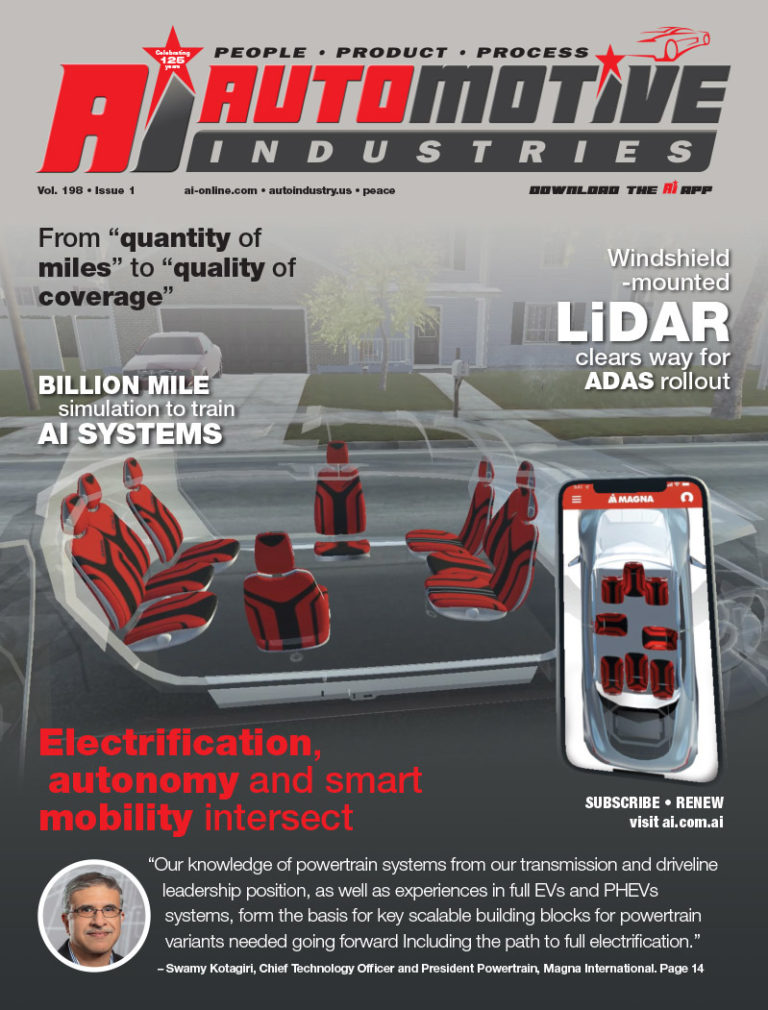































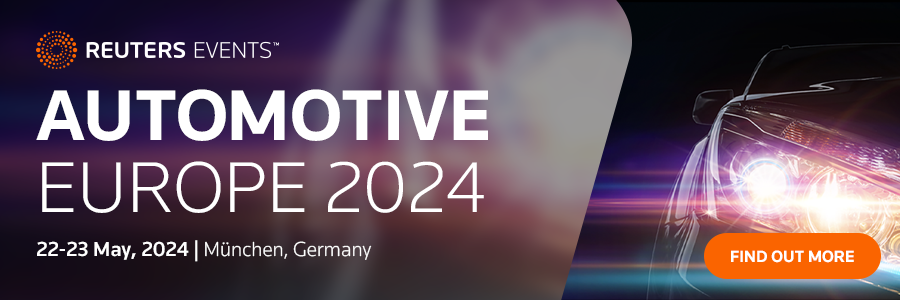





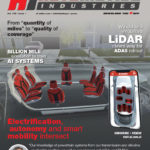 KA creates new Automotive Systems division
KA creates new Automotive Systems division

